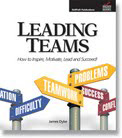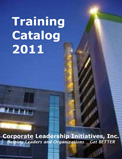R = References
Get references and contact them! One of the biggest mistakes made by small and medium-sized businesses is the failure to check on references (or even get them in the first place!) So this newsletter is going to help you understand which references are the best and how to interview those references for the right information.

We’re going to assume that you are smart enough to do the following:
- Have a criminal background check done by a professional.
- Contact the Department of Motor Vehicles (if they are going to be driving a company vehicle).
- Run a credit check (especially if they are going to be handling company funds or having access to company bank accounts). KEEP IN MIND… If you turn down an applicant because of a bad credit report you must inform them of this fact.
- Troll the social media sites for any of their public postings. And…
- Conduct this whole process legally (which usually means having their written permission for certain of these actions).
Beyond these, look for (or maybe even ASK FOR) these types of references:
- Bosses
- Peers, colleagues, or co-workers
- Subordinates, or people the applicant has mentored
- Vendors or customers

Seek feedback on a variety of work assignments, projects, and roles. You want to gain examples of the many different facets of the applicant’s work experiences, skills, and talents.
If the applicant is doing what they should be doing in the job-seeking process, they will provide you with contact information for each reference (including the best time to call) as well as some background information; the nature of their professional relationship with the applicant; and what type of information they can be expected to give about the applicant.
Don’t stop there.
Work your own network to find other sources of information about the applicant. If you know someone who works at an organization where the applicant worked, call them and find out who you can talk to there that knew or worked with the applicant – someone who can give you helpful feedback. If you don’t know someone at the organization, use your LinkedIn contacts to find someone, or… talk to colleagues at your own company to see if THEY know someone there.
One of the challenges is to do this carefully and discreetly, especially if the applicant is conducting a confidential job search. Another challenge is to find a person who will be open and honest with you!
One Final Tip

When you have those conversations with references, pay close attention to what is NOT being said. If references are giving you generic information or simply not being forthcoming, that may be telling you something even more important about the applicant!
If you want more help in managing and supervising your team, call us! We have helped leaders in thousands of organizations—equipping them with practical tools to lead and manage their people more effectively. And stay tuned to this blog for more great ideas and tips!
Until next time… Yours for better leaders and better organizations,
Dr. Jim Dyke – “The Boss Doctor” ™ helping you to BE a better boss and to HAVE a better boss!


